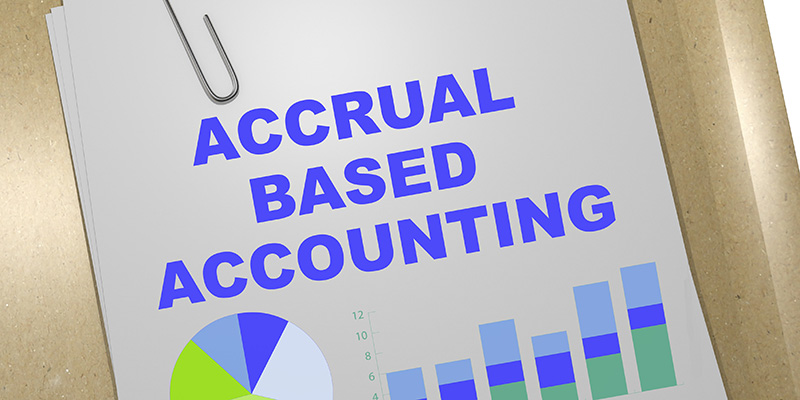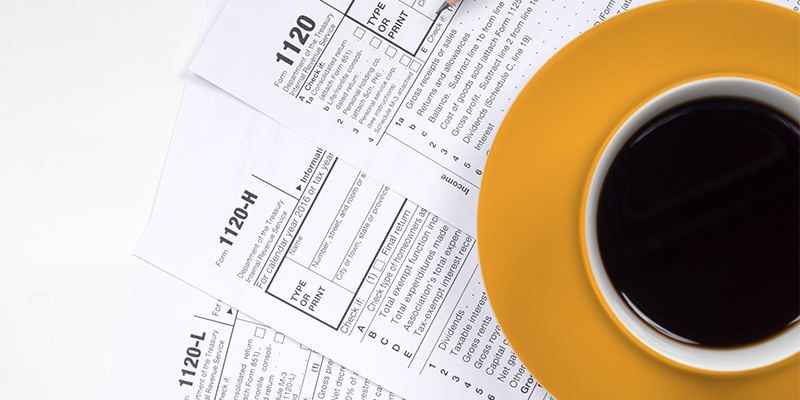HOA Board Meetings: Types, Planning, And Purpose
Homeowners association board meetings are where important decisions are made. There are different types of HOA meetings depending on the purpose or matter at hand. For efficient and productive HOA board meetings, here’s what you need to know.
What Are the Different Types of HOA Board Meetings?
Not all HOA board meetings are the same. There may be different players depending on the type and purpose of the meeting. Here are the most common types of meetings you will encounter in an HOA community.
1. Annual Meeting
The annual meeting is open to all members of the HOA community. It usually takes place at the beginning of each year. The purpose of this meeting is to inform homeowners of what has been going on in the community and what to expect for the year. HOA board members often give a recap of the previous year before presenting the annual budget, upcoming projects, and committee reports. The election of new board members also takes place during the annual meeting.
2. Board Meetings
 HOA board meetings are held throughout the year. Depending on your governing documents, board members may be required to meet monthly or quarterly.
HOA board meetings are held throughout the year. Depending on your governing documents, board members may be required to meet monthly or quarterly.
The purpose of board meetings is to discuss HOA-related matters such as new policies, maintenance projects, and committee reports. Unfinished business from the previous board meeting may also be discussed.
HOA board meetings also have an open forum where homeowners can voice out their concerns and suggestions. However, they should give advance notice as only topics in the HOA meeting agenda can be discussed.
3. Executive Sessions
Unlike other types of HOA meetings, executive sessions are strictly for board members only. The purpose of these closed-door sessions is to discuss sensitive or confidential matters such as contracts, delinquent assessments, personnel issues, and legal matters. Accordingly, the HOA board meeting minutes are not released to the public.
4. Committee Meetings
For larger HOAs, board members can delegate some of their duties and responsibilities to committees. As such, the purpose of committee meetings is to discuss matters related to their objectives and duties.
For instance, an architectural committee may use the meeting to review architectural applications and appeals. Committee meetings may include some or all board members. These HOA meetings are also open to the entire community.
5. Special Meetings
All HOA board meetings require advanced notice, except for special meetings. A special meeting may be called due to an emergency or if there is an issue that requires immediate action from the board. The president or the majority of the board may call for a special meeting. It can be held over the phone or through email as long as all members have agreed and put in writing.
How to Plan HOA Board Meetings
Do your HOA board meetings suffer from low attendance? Do your meetings normally drag for hours and hours? If so, it might be due to poor planning. If you want to be efficient and productive, here are some tips to keep in mind when planning your HOA board meetings:
1. Refer to Your Governing Documents
Board members should refer to the governing documents to establish HOA board meeting protocols. You will be able to determine the HOA meeting rules and requirements when it comes to agendas, minutes, and quorum. Apart from having effective and productive HOA board meetings, it’s important to conduct these sessions according to the protocol stated under the governing documents.
2. Create an Agenda and Stick to It
Board members already have limited time to attend to HOA matters; their time shouldn’t be wasted on overly long and unproductive meetings. If you want to stay inside or near the ideal 45-minute meeting length, you need to create an HOA board meeting agenda — and stick to it no matter what. You can also assign time limits for discussing certain topics to prevent board members from talking too long. If the time runs out, table the issue until the next meeting.
3. Send HOA Meeting Notices Early
Board members must provide adequate notice ahead of a scheduled meeting. However, in cases where a quorum is needed — such as the annual HOA meeting — consider sending an HOA meeting notice as early as possible. Homeowners are very busy so it’s better to inform them before their schedules become packed. This is a great way to increase attendance during HOA meetings.
4. Set Up a Community Suggestion Box
 Homeowners’ input is very important but not everyone has the time to attend HOA meetings. To address the many concerns of homeowners but also maintain structure and brevity, consider putting up a community suggestion box.
Homeowners’ input is very important but not everyone has the time to attend HOA meetings. To address the many concerns of homeowners but also maintain structure and brevity, consider putting up a community suggestion box.
This way, when homeowners see their concerns listed on the agenda, they will make it a point to attend the scheduled meeting. By implementing a schedule or limit to the open forum, the board can prevent meetings from dragging on for hours.
5. Always Remember to Take HOA Meeting Minutes
HOA meeting minutes are not only mandated but they are also very useful, especially for homeowners who are unable to attend the meetings. The board secretary — or an authorized representative — is responsible for taking minutes during every HOA meeting. In case there are misunderstandings, issues, or potential litigation, HOA meeting minutes can help clarify the situation or serve as legal records.
How to Keep HOA Board Meetings Efficient and Productive
As a board member, it’s important to know how to run a homeowners meeting. Apart from abiding by your governing documents, proper planning is the key to having efficient and productive HOA board meetings. Make sure to settle the agenda ahead of time so that you can give as much notice as possible. If there are a lot of discussion points, it can be helpful to have an HOA annual meeting checklist. HOA boards can also consult their management company or use HOA tools to make the entire process stress- and hassle-free.
If you need help with your next board meeting or other HOA-related concerns, feel free to reach out to the Condo Manager team. Call us at (800) 626-1267, email us at sales@condomanagerusa.com, or contact us online to learn more about our HOA software solutions.
RELATED ARTICLES:
- What Do HOA Board of Directors Do for a Community?
- HOA Turnover: Tips For Ensuring A Smooth Transition
- How To Prevent Homeowners Association Fraud



 Many HOA boards struggle with the fulfillment of their daily responsibilities either due to a lack of time or expertise. If that situation sounds familiar to you, then perhaps it is time to receive help from a professional HOA management company.
Many HOA boards struggle with the fulfillment of their daily responsibilities either due to a lack of time or expertise. If that situation sounds familiar to you, then perhaps it is time to receive help from a professional HOA management company. It is important to understand that not all companies offer the same services and have the same fee structure.
It is important to understand that not all companies offer the same services and have the same fee structure.
 Social media is another viable option, though not everyone is active on social media or even has an account.
Social media is another viable option, though not everyone is active on social media or even has an account. A printed homeowners association newsletter used to be the standard communication tool.
A printed homeowners association newsletter used to be the standard communication tool.
 Given that there are three accounting methods that associations can choose from, you may wonder why most people favor the accrual basis of accounting.
Given that there are three accounting methods that associations can choose from, you may wonder why most people favor the accrual basis of accounting.
 Filling up Form 1120-H for the first time can be quite confusing. If you’re looking for Form 1120-H instructions, here’s a brief explanation of the different terms you’ll encounter.
Filling up Form 1120-H for the first time can be quite confusing. If you’re looking for Form 1120-H instructions, here’s a brief explanation of the different terms you’ll encounter. If your HOA fails to submit Form 1120-H, it will be forced to file for Form 1120 — which does not have the same deductions.
If your HOA fails to submit Form 1120-H, it will be forced to file for Form 1120 — which does not have the same deductions.
 Property management accounting software is no longer as expensive as before. Advancements in technology have made these programs accessible at lower price points. Even though there is still an upfront payment, you will save money in the long run.
Property management accounting software is no longer as expensive as before. Advancements in technology have made these programs accessible at lower price points. Even though there is still an upfront payment, you will save money in the long run. Property management accounting software comes with security features so you won’t have to worry about confidential or sensitive data being stolen or leaked.
Property management accounting software comes with security features so you won’t have to worry about confidential or sensitive data being stolen or leaked.
 Vendor management can become confusing if both parties are dealing with different people every time. Communication lines get crossed, resulting in miscommunications or even disagreements.
Vendor management can become confusing if both parties are dealing with different people every time. Communication lines get crossed, resulting in miscommunications or even disagreements. HOA software can also keep a record of your comments and feedback regarding a specific vendor. You can also take note of the goals and objectives for your relationship with vendors.
HOA software can also keep a record of your comments and feedback regarding a specific vendor. You can also take note of the goals and objectives for your relationship with vendors.
 Overreporting expenses is one of the HOA financial reporting problems to look out for. Mistakes in your HOA financial statements might simply be due to human error but it can also be a sign of fraud or embezzlement.
Overreporting expenses is one of the HOA financial reporting problems to look out for. Mistakes in your HOA financial statements might simply be due to human error but it can also be a sign of fraud or embezzlement. If financial management is not the forte of the board, considering consulting or hiring professionals.
If financial management is not the forte of the board, considering consulting or hiring professionals.
 The only way to know that the association is in good financial standing is to review its
The only way to know that the association is in good financial standing is to review its  After the official turnover takes place, the developer or its representative should still be present at
After the official turnover takes place, the developer or its representative should still be present at 
 Associations spend a lot of time connecting accounting and service records with their communications. You have to jump between word processors and spreadsheets, cross-reference records, and double-check emails to get the information you need.
Associations spend a lot of time connecting accounting and service records with their communications. You have to jump between word processors and spreadsheets, cross-reference records, and double-check emails to get the information you need.
